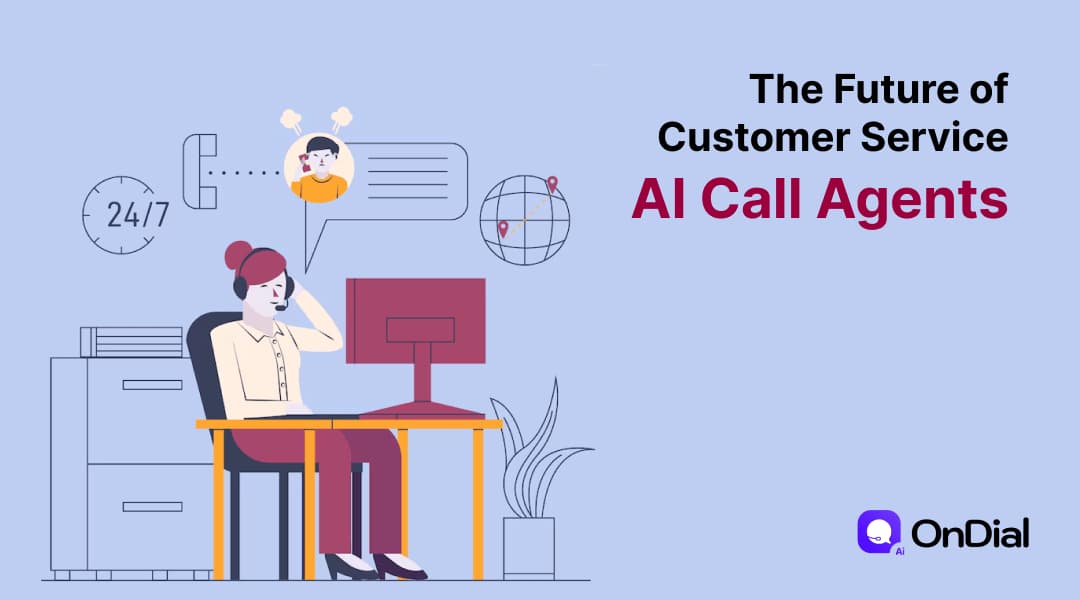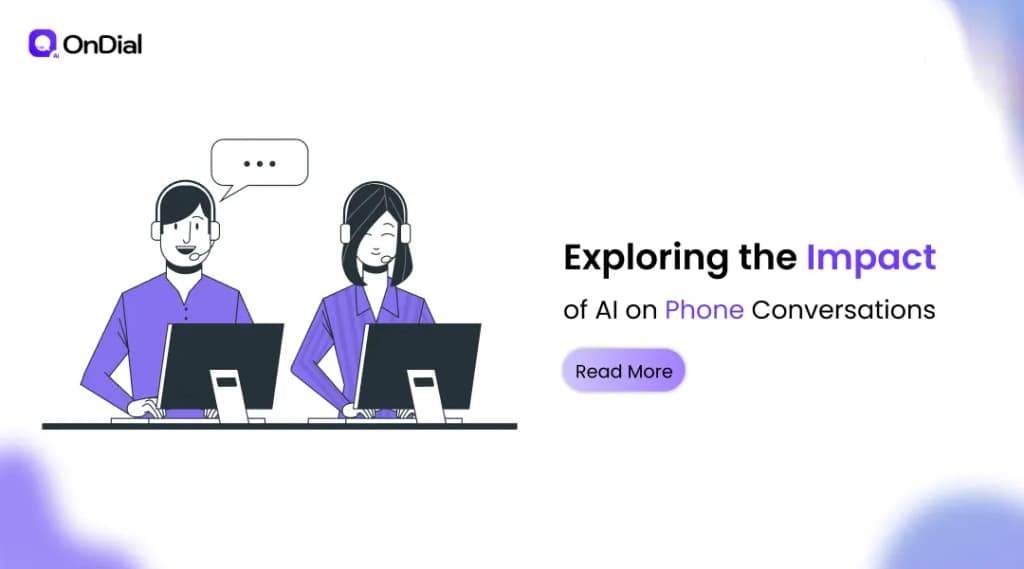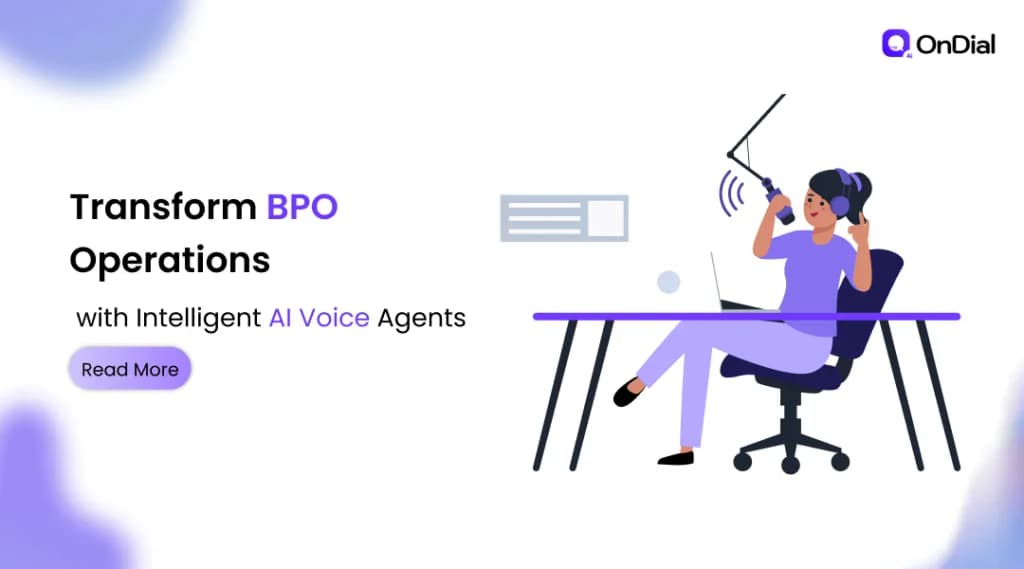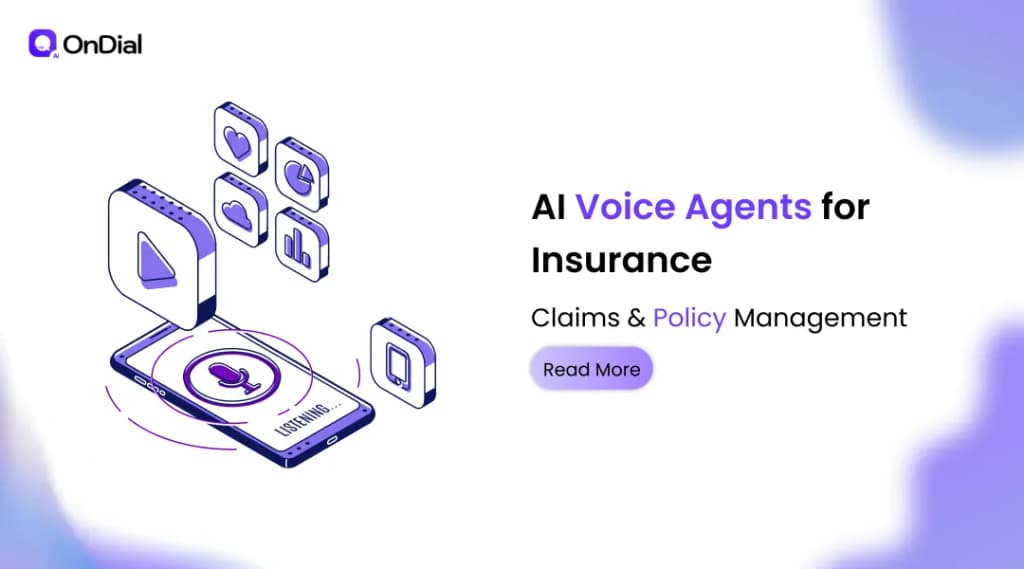I’ll be blunt: customer service is broken.
I’ve sat in too many boardrooms where leaders nod along while customers wait 20 minutes on hold. I’ve seen chatbots frustrate people into rage-quitting. And I’ve seen brilliant support teams drown under repetitive questions that should have been handled in seconds.
That’s where AI call agents enter the story, not as some sci-fi fantasy, but as a practical solution to very human problems.
But here’s the catch. AI call agents aren’t magic. They’re not here to replace every human interaction. They’re here to take the robotic stuff off humans’ plates so the actual humans can do what they do best: connect, empathize, solve.
Let’s unpack this without the usual marketing fog.
The Role of AI in Modern Customer Service
From chatbots to intelligent voice assistants
Once upon a time, automation meant clunky IVR menus: Press 1 for billing. Press 2 to speak to no one ever.
Then came chatbots. Text-based, scripted, and usually… underwhelming.
Today, though, conversational AI has matured. Voice AI platforms like OnDial’s allow businesses to deploy intelligent, context-aware AI call agents that can actually understand natural speech, handle intent, and respond in a way that feels less like “machine” and more like “assistant.”
Bridging the gap between automation & personalization
The fear is obvious: automation means losing the human touch. But here’s the paradox—when done right, AI actually creates more room for humanity.
Why? Because AI filters out the noise. It takes care of password resets, order tracking, appointment confirmations, the stuff that burns human agents out. That leaves humans free to handle the conversations where empathy and judgment matter.
Benefits of AI Call Agents for Businesses
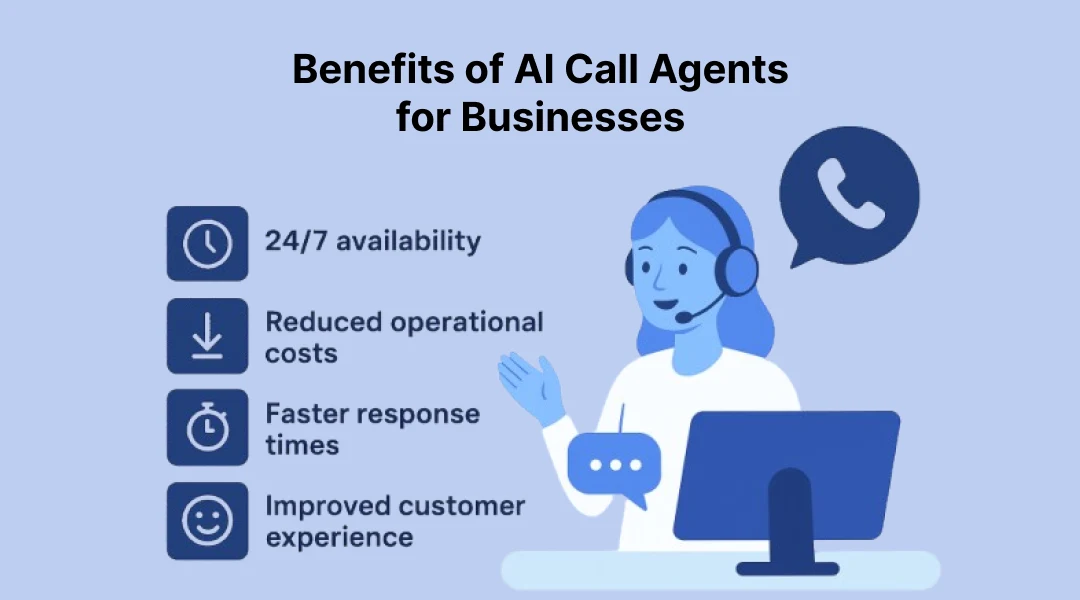
24/7 availability
AI doesn’t sleep. Or eat lunch. Or call in sick. For businesses, that means customer calls can be answered any time of day, a game-changer (oops, not allowed, let’s call it a business lifesaver).
Reduced operational costs
Every CEO I’ve worked with asks the same thing: “How do we scale without tripling our headcount?” AI call agents are one answer. With automation handling a chunk of queries, businesses can support more customers with fewer resources.
Faster response times
Customers hate waiting. AI can handle thousands of calls in parallel, giving instant responses for routine issues. That alone can lift customer satisfaction metrics overnight.
Improved customer experience
This is the kicker. Done right, AI isn’t just faster, it’s smarter. Integrated with CRM systems, AI call agents can greet customers by name, recall past interactions, and provide context-aware answers that feel like continuity, not coldness.
AI Call Agents vs. Human Agents: A Balanced Approach
Where AI excels
- Handling repetitive tasks (order tracking, balance inquiries, appointment booking).
- Scaling support during peak hours without extra staff.
- Multilingual support at scale.
Where human empathy is still irreplaceable
- Complex problem-solving.
- Sensitive conversations (billing disputes, medical issues, complaints).
- Building genuine relationships.
Hybrid model for best results
Here’s my philosophy: AI should handle the routine; humans should handle the remarkable. That’s the hybrid model I’ve seen actually work.
Challenges and Limitations of AI Call Agents
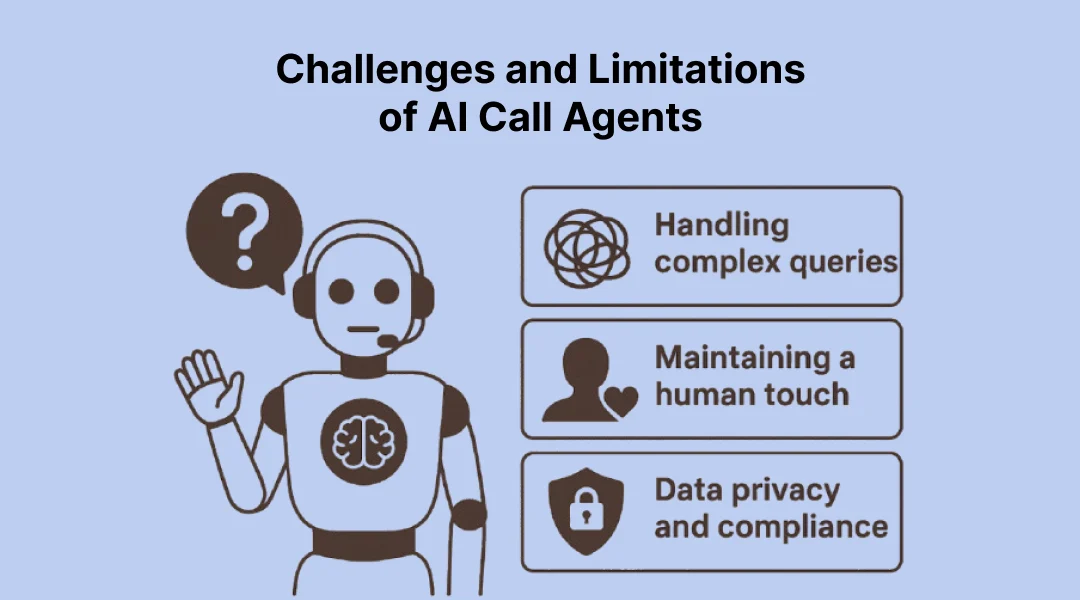
This isn’t a fairy tale. Let’s talk about reality.
Handling complex queries
AI struggles when conversations drift too far from trained scenarios. Humans are still essential for edge cases.
Maintaining a human touch
Ever yelled “speak to a human” at an IVR? Exactly. Over-automation leads to frustration. The trick is designing systems with graceful handoff points.
Data privacy and compliance
Customers trust you with their voices and data. Mishandle that, and you’re not just facing fines, you’re burning trust forever. Solutions like OnDial emphasize transparency and compliance for exactly this reason.
Future Trends: How AI Will Shape Customer Service
Hyper-personalization through AI
The future isn’t just answering calls. It’s anticipating them. AI will proactively reach out—“We noticed your shipment is delayed. Here’s your new delivery date.”
AI integration with CRM systems
Imagine an AI that doesn’t just answer but remembers. That means customer history, preferences, and predictive insights, all at an agent’s fingertips.
Predictive support and proactive customer care
Support won’t wait for issues. With AI, businesses can predict problems before customers even call. That’s not support, that’s prevention.
Conclusion
Here’s my bottom line: AI call agents are not the future of customer service. They’re the present.
But don’t buy the hype that they’ll replace humans. That’s lazy thinking. What they will do is transform the economics and the experience of customer support. They’ll free humans to be more human.
And if you’re choosing a partner? Pick one that doesn’t just sell software but understands the human side of service. That’s why companies like OnDial are worth watching.
